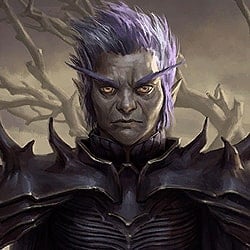EzekielRaiden
Follower of the Way
No, I'm quite comfortable saying they're both dull and trope-makers. Indeed, it is their trope-maker status which has caused them to be dull, because everyone copy-pastes the superficial appearances from the worldbuilding juggernaut who made them (Tolkien.)Neither halflings, nor elves, are dull.
They are trope makers.
They're dull because 99.9999% of campaigns use them in precisely the same rigid, "Planet of Hats" ways with zero variation. Elves come in three flavors, stuck-up jerks (usually magical, but not always), hippie tree-lovers (who may also be stuck up, but in a "proselytizing vegan" kind of way), and scary dogmatic xenophobes. Halflings are even worse, in that they have one archetype, "hobbit."
Settings like Dark Sun that actually do something interesting and different with elf and halfling (and dwarf, for that matter) are as rare as hen's teeth. And, unfortunately, they don't always do something interesting with it even when they do! Dragon Age's elves are just oppressed slaves and literally nothing else, or sympathetic scary dogmatic xenophobes, both of whom used to be stuck-up jerks (that were very magical.)
The problem with Tolkien's influence on high fantasy is that he was so good at what he did, he's become something of an unquestionable Great Master. People don't actually think about the things he created or why, don't look beneath the surface, take stereotypes at face value and do nothing to flesh them out beneath that because "oh, you know what elves are, you've read Tolkien, everyone's read Tolkien!" This isn't to question the quality of Tolkien's worldbuilding--instead, it's that because he put out such incredible high-quality worldbuilding, many many many many MANY MANY MANY MANY (×∞) authors just never bother to do anything other or new or even to just think deeply on the stuff he proffered.
Tolkien's elves are absolutely amazing as a one-off. They're perfectly justifiable as a common reference. They become dull when this one single story is mirrored over and over and over and over, ad nauseam, across nearly the entire space of high fantasy.
Hence why I have such a dim view of anything which tries to enforce the "core four" on a game, or to restrict development to only those things. As I have previously said on this forum: "We have the freedom to create ANY world we imagine--so of course every world we imagine is exactly the gorram same. How stultifyingly dull our hobby becomes!"



